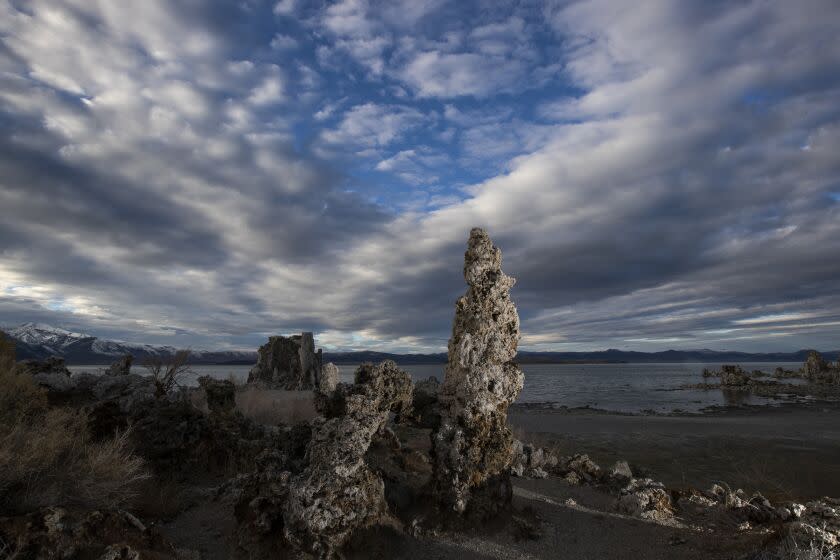Letters to the Editor: Will L.A. break its promise not to destroy Mono Lake?

To the editor: In 1994, the Los Angeles Department of Water and Power, the state of California and the Mono Lake Committee reached an agreement to end 16 years of litigation over water diversions by setting a target elevation for the surface of Mono Lake at 6,392 feet above sea level. ("L.A.'s new water war: Keeping supply from Mono Lake flowing as critics want it cut off," Feb. 19)
I was on the City Council then and brokered that agreement, which was meant to protect the lake and its surrounding environment. With the help of the Mono Lake Committee, Los Angeles acquired state and federal funds to drastically reduce our use of water and therefore the need to divert so much from the streams that feed the lake.
Although the surface elevation of Mono Lake has risen only four feet since then — sitting well below the target elevation — the DWP now wants to renege on its agreement, claiming it has no other option.
This is absurd. To protect our future as well as that of Mono Lake, we must reduce our demand for water. The Mono Lake Committee and others have again offered to help secure funds for conservation and other programs, yet the DWP resists.
What kind of a city are we if we cannot keep our commitments and care for the environment?
Ruth Galanter, Venice
The writer was a member of the L.A. City Council from 1987 to 2003.
..
To the editor: I thought this was settled decades ago.
The late biologist David Gaines, who founded the Mono Lake Committee, connected the dots: California gulls nest on the lake's islands, eating the brine shrimp in the lake. When the water level gets too low, two things happen.
First, the islands turn into peninsulas and become accessible to coyotes and other predators, which will eat the eggs and chicks. Second, the water will increase in salinity as L.A. diverts from the streams feeding the lake, which becomes too salty for the shrimp.
This was settled business, and the courts stamped it as such. I do not want to put a "Save Mono Lake" sticker on my car like we had in the 1980s. We have agreed that it has to stay. Los Angeles needs to keep its word.
Edgar Kaskla, Garden Grove
..
To the editor: When it comes to Mono Lake, we are angling to sustain a water source from an overdrawn account. Condemning the lake to cover perhaps 1% of Los Angeles' water needs does not comport with plans to add a quarter-million housing units in the city.
We have a much bigger problem. We need to focus on water capture and reuse.
Meanwhile, folks seem to be back to watering their lawns. If more residents replace their lawns sooner rather than later, we won't need water from Mono Lake.
Siegfried Othmer, Woodland Hills
This story originally appeared in Los Angeles Times.

